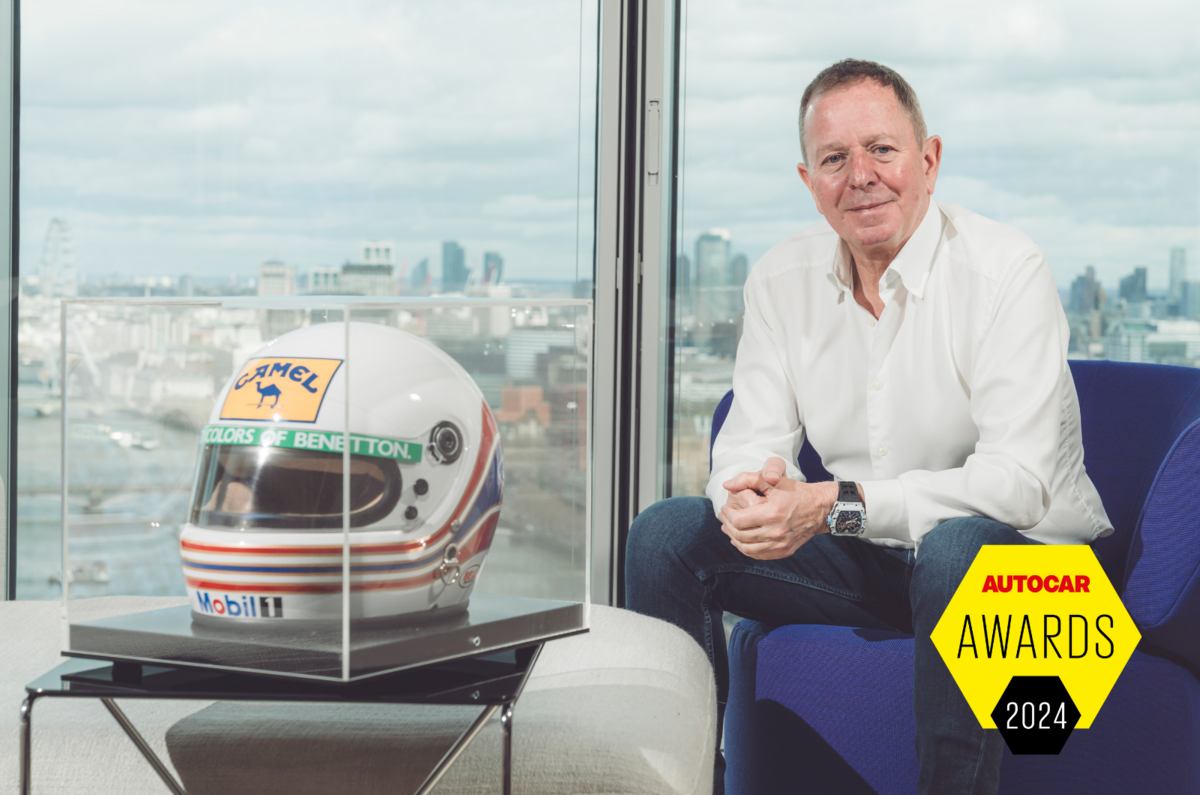When a second career in Formula 1 started for Martin Brundle back in 1997, the ITV co-commentary gig was very much not his first choice for that season – because he thought he still had a race seat with Jordan.
“When I found out I wasn’t racing, I very reluctantly went into the commentary box with Murray [Walker],” he recalls.
“I remember being in the box in Melbourne for the first race, the cars came to the grid and I felt a sense of panic because I wasn’t ready to start the race: they can’t start without me! I’d been hanging around F1 for 12 years at that point… But it went down quite well.”
Some understatement there from the always-modest Brundle, winner of the Autocar Editor’s Award for 2024.
This accolade is given to an individual who has had the greatest success individually or for their company, and the world-leading standards Brundle sets in making F1 accessible to an ever-wider audience through his role as Sky’s lead pundit and co-commentator is why he is this year’s recipient.
Despite all his success and qualities as a broadcaster, Brundle admits that he has never watched himself back on TV – not even one of his legendary grid walks.
His training was as simple as a meeting with the late Murray Walker on the Edgware Road in London ahead of the 1997 season, when Walker said to Brundle: “You’re here to inform and entertain, and nothing more.”
“I’ve followed that mantra ever since,” says Brundle. “People don’t care about you. I use my experiences to sometimes explain something, but they don’t care about what you did. If you can, I like using a little humour because it’s a wonderful communication tool. But I’ve always stuck with saying what you see, being truthful and honest and knowing that you might upset a few people.”
Among those Brundle has upset is Michael Schumacher, who snubbed him for five years after something Brundle said was mistranslated into a German newspaper. “Then we got drunk in a nightclub in Valencia and got over it,” he says.
Brundle cohabits the commentary box for 16 races a year as a summariser alongside Sky’s lead commentator David Croft.
Brundle says he has never taken notes into the commentary box, and inside it is often just him and Croft, with an occasional additional summariser such as Anthony Davidson or Karun Chandhok, who dig deeper into the race and find out what’s not shown on the main feed.









Join the debate
Add your comment
*We love the Brundle....he makes F-1 what it is. Eccletic, smart as can be and he knows people. We loved him with Danica Patrick too. He is not a sexist. On the gird is always worth watching. His race commentary...excellent!
No, the Sky commentary is used worldwide. I believe they've talked about being broadcast in 50 countries. That'll probably diminsh a bit now that F1's own streaming service is there (F1 TV Pro).
With Martin not being at some of the races recently I was worried he was stepping back, though from this interview it doesn't seem like it. That's a good thing as, for me at least, a race without Martin's commentry is not the same.